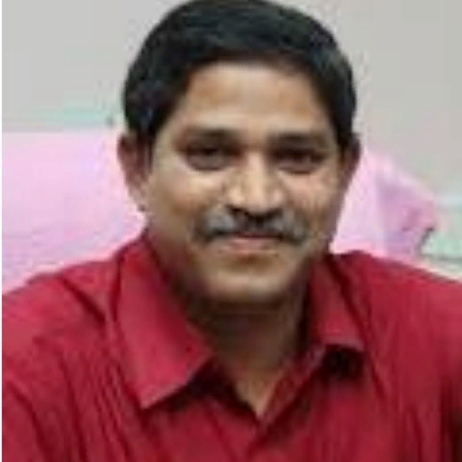
Ch.Satyanarayana
Work place: Department of Computer Science and Engineering, Jawaharlal Nehru Technological University Kakinada. Andhra Pradesh, India
E-mail: chsatyanarayana@yahoo.com
Website:
Research Interests: Information-Theoretic Security, Image Processing, Network Security, Network Architecture, Information Security, Image Manipulation, Image Compression
Biography
Dr. Ch. Satyanarayana is Professor in Computer science and Engineering Department at Jawaharlal Nehru Technological University Kakinada, Kakinada. He has 13 years of experience. His area of interest is on Image processing, Database Management Systems, Speech Recognition, Pattern recognition and network security. He published more than 25 research papers in international journals. He published more than 30 research papers in international conferences.
Author Articles
Performance Evaluation of Image Segmentation Method based on Doubly Truncated Generalized Laplace Mixture Model and Hierarchical Clustering
By T.Jyothirmayi K Srinivasa Rao P.Srinivasa Rao Ch.Satyanarayana
DOI: https://doi.org/10.5815/ijigsp.2017.01.06, Pub. Date: 8 Jan. 2017
The present paper aims at performance evaluation of Doubly Truncated Generalized Laplace Mixture Model and Hierarchical clustering (DTGLMM-H) for image analysis concerned to various practical applications like security, surveillance, medical diagnostics and other areas. Among the many algorithms designed and developed for image segmentation the dominance of Gaussian Mixture Model (GMM) has been predominant which has the major drawback of suiting to a particular kind of data. Therefore the present work aims at development of DTGLMM-H algorithm which can be suitable for wide variety of applications and data. Performance evaluation of the developed algorithm has been done through various measures like Probabilistic Rand index (PRI), Global Consistency Error (GCE) and Variation of Information (VOI). During the current work case studies for various different images having pixel intensities has been carried out and the obtained results indicate the superiority of the developed algorithm for improved image segmentation.
[...] Read more.Emotion Recognition System Based On Skew Gaussian Mixture Model and MFCC Coefficients
By M.ChinnaRao A.V.S.N. Murty Ch.Satyanarayana
DOI: https://doi.org/10.5815/ijieeb.2015.04.07, Pub. Date: 8 Jul. 2015
Emotion recognition is an important research area in speech recognition. The features of the emotions will affect the recognition efficiency of the speech recognition systems. Various techniques are used in identifying the emotions. In this paper a novel methodology for identification of emotions generated from speech signals has been addressed. This system is proposed using Skew Gaussian mixture model. The proposed model has been experimented over a gender independent emotion database. In order to extract the features from the speech signals cepstral coefficients are used. The developed model is tested using real-time speech data set and also using the standard and data set of Berlin. This model is evaluated in the presence of noise and without noise the efficiency of the model is evaluated and is presented by using confusion matrix.
[...] Read more.Object Tracking System Using Approximate Median Filter, Kalman Filter and Dynamic Template Matching
By G. Mallikarjuna Rao Ch.Satyanarayana
DOI: https://doi.org/10.5815/ijisa.2014.05.09, Pub. Date: 8 Apr. 2014
In this work, we dealt with the tracking of single object in a sequence of frames either from a live camera or a previously saved video. A moving object is detected frame-by-frame with high accuracy and efficiency using Median approximation technique. As soon as the object has been detected, the same is tracked by kalman filter estimation technique along with a more accurate Template Matching algorithm. The templates are dynamically generated for this purpose. This guarantees any change in object pose which does not be hindered from tracking procedure. The system is capable of handling entry and exit of an object. Such a tracking scheme is cost effective and it can be used as an automated video conferencing system and also has application as a surveillance tool. Several trials of the tracking show that the approach is correct and extremely fast, and it's a more robust performance throughout the experiments.
[...] Read more.Other Articles
Subscribe to receive issue release notifications and newsletters from MECS Press journals